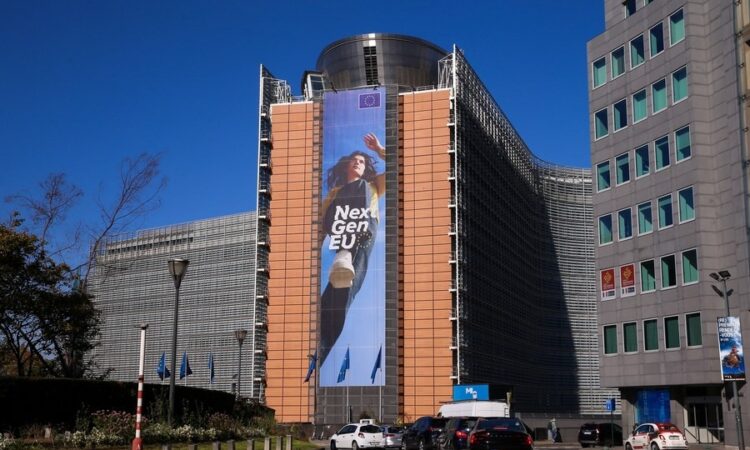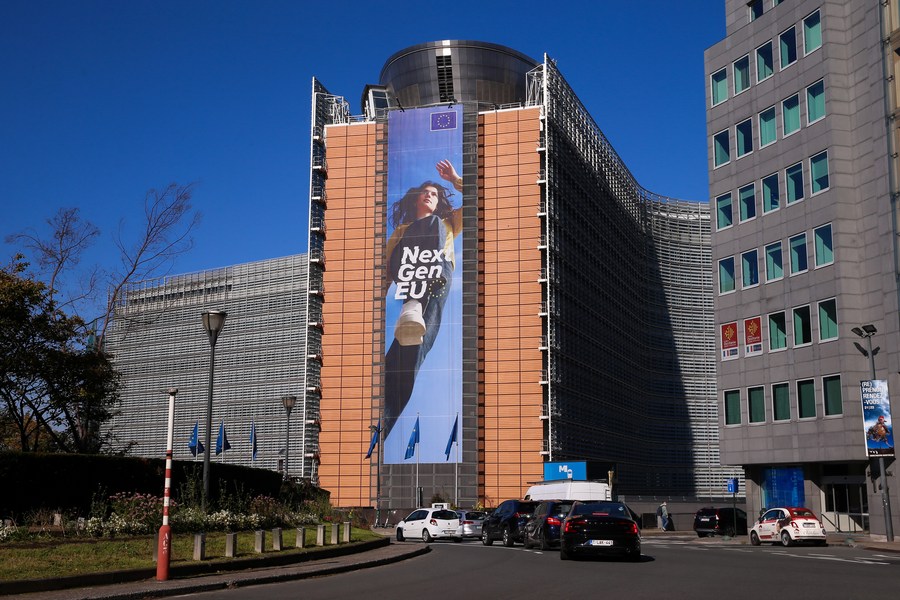

European Union leaders gathered for a two-day summit in Brussels on Thursday for discussions on plans to enhance the military capabilities of both Ukraine and the bloc itself.
While most EU countries support the notion of strengthening Europe”s military industry capabilities through joint purchases and common production, divergences have emerged regarding the financing of these initiatives.
The contentious idea of funding the enhancement of the EU’s military capabilities through eurobonds will be a topic of discussion among the bloc’s 27 leaders, reported the Euronews website.
France’s President Emmanuel Macron is among some leaders proposing the concept of defense bonds as a method to finance enhanced military investments, it said.
“We are raising the issue to say that we need to have innovative sources of funding,” said an official from the Elysee as quoted by the Financial Times newspaper. “What we want is not to start the debate with limitations on the sources of financing that can be imagined or mobilized. So eurobonds for us …should be examined.”
Estonia’s Prime Minister Kaja Kallas also backed the idea of defense bonds. At the EU leaders’ summit last month, Kallas suggested that the bonds should amount to a total of 100 billion euros ($109 billion).
Euronews cited a senior diplomat from a northern EU country as saying they had reservations about endorsing defense bonds, preferring a market-driven strategy and more private investments.
‘Difficult’ situation
“We have to find a way to finance the boosting of our defense industry and how to help Ukraine. We need European money,” Petteri Orpo, prime minister of Finland, told reporters on the eve of the summit.
“But (joint borrowing) is very difficult,” he was quoted as saying by the FT.
However, most diplomats find the alternative prospect of raising taxes or cutting public services for military funding unappealing, reported The Guardian.
It cited one diplomat as suggesting that mandating each country to contribute 2 percent of their national GDP to the EU military was another possibility to be considered.
Plans to seize billions of euros in interest from Russia’s frozen assets and allocate a large portion of the funds to Ukraine would be scrutinized at the meeting as well, said The Guardian.
On Wednesday, the Kremlin stated that such action would constitute an “unprecedented breach of international law”.
Earlier this week, EU Council President Charles Michel highlighted Russia as a significant military threat to EU countries, emphasizing the need to transition to a “war economy mode” in response to the current situation.
In an opinion piece published by several media outlets, Michel proposed utilizing the European budget and the windfall profits from Russia’s frozen assets to provide continuous support to Kyiv, and demonstrate unwavering commitment to supply military equipment to Ukraine for as long as necessary.
Agencies contributed to the story.






